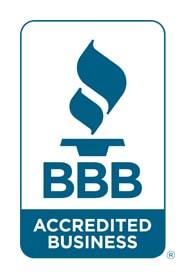Air Conditioning Installation, Heating Repair, AC Service, Heating Service & AC RepairTampa, FL, North Port, FL, Town 'n' Country, FL, Port Charlotte, FL, Punta Gorda, FL & Englewood, FL
As temperatures dip and people spend more time indoors, the risk of catching a cold or the flu
increases. While you may be aware of the importance of washing your hands and disinfecting
surfaces, one crucial but often overlooked factor is your indoor air quality (IAQ). Your HVAC
system plays a key role in maintaining a healthy home environment, especially during cold and
flu season.
Why Indoor Air Quality Matters
The air you breathe inside your home can significantly impact your health. During cold and flu
season, viruses and bacteria can linger in the air and on surfaces longer, increasing the risk of
illness. Additionally, poor indoor air quality can exacerbate allergies and respiratory issues,
making it harder for your body to fight off infections.
Proper ventilation, air filtration, and humidity control are essential to ensure clean, healthy air.
Your HVAC system can address these elements and create a safer, more comfortable indoor
environment.
3 Ways Your HVAC System Can Improve Indoor Air Quality
1. Air Filtration
Modern HVAC systems are equipped with air filters designed to capture dust, allergens, and
even airborne viruses. Upgrading to a high-efficiency particulate air (HEPA) filter can further
reduce the spread of harmful particles. HEPA filters trap particles as small as 0.3 microns,
significantly lowering the presence of bacteria and viruses in the air.
Pro Tip: Replace your HVAC filters every 1-3 months during cold and flu season to maintain
peak filtration performance.
2. Humidity Control
Maintaining proper humidity levels in your home is essential for your health. Viruses like the flu
thrive in dry air, which is common during the winter months. An HVAC system with a built-in
humidifier can regulate moisture levels, making it harder for viruses to survive and spread.
Ideal Humidity Levels: Aim for a humidity level between 30-50% to reduce the spread of
airborne viruses and improve overall comfort.
3. Ventilation
Stale, recirculated air can increase the concentration of airborne viruses, allergens, and
pollutants. Proper ventilation ensures a steady flow of fresh air from the outside, diluting indoor
contaminants. HVAC systems with energy recovery ventilators (ERVs) bring in fresh outdoor air
while maintaining energy efficiency. Pro Tip: Open windows periodically or use an ERV to refresh indoor air and reduce the
concentration of airborne pathogens.
Benefits of Improved Indoor Air Quality
● Reduced Risk of Illness: Cleaner air lowers the spread of airborne viruses and
bacteria.
● Better Respiratory Health: Reduced allergens and irritants make it easier to breathe,
especially for those with asthma or allergies.
● Increased Comfort: Balanced humidity and fresh air make your home more
comfortable, promoting better sleep and well-being.
What You Can Do to Improve Indoor Air Quality
Here are a few simple actions you can take to support your HVAC system in maintaining healthy
air quality:
● Upgrade Your Filters: Switch to HEPA filters for better air purification.
● Schedule HVAC Maintenance: Ensure your system is running efficiently with a
seasonal tune-up.
● Invest in an Air Purifier: Standalone air purifiers can provide an extra layer of
protection, especially in bedrooms and high-traffic areas.
● Monitor Humidity: Use a hygrometer to track humidity levels and consider a humidifier
if needed.
Trust Total Air Solutions for Cleaner, Healthier Air
Don’t let poor air quality compromise your family’s health this cold and flu season. Total Air
Solutions offers expert HVAC maintenance, air quality assessments, and filter upgrades to help
you breathe easier. Our team can ensure your system is optimized for clean air, balanced
humidity, and proper ventilation.
Call Total Air Solutions today at 888-426-1770 to schedule your indoor air quality
assessment and stay healthy this season!
AC Repair ∴ HVAC Installation ∴ HVAC Company ∴ AC Service ∴ Air Conditioning Installation ∴ Englewood, FL ∴ Punta Gorda, FL ∴ North Port, FL









